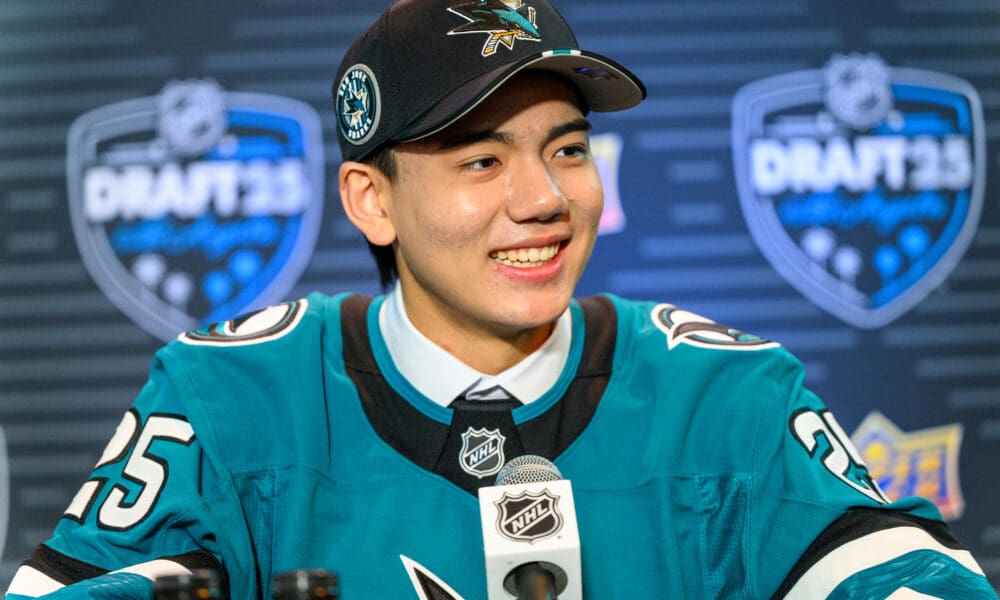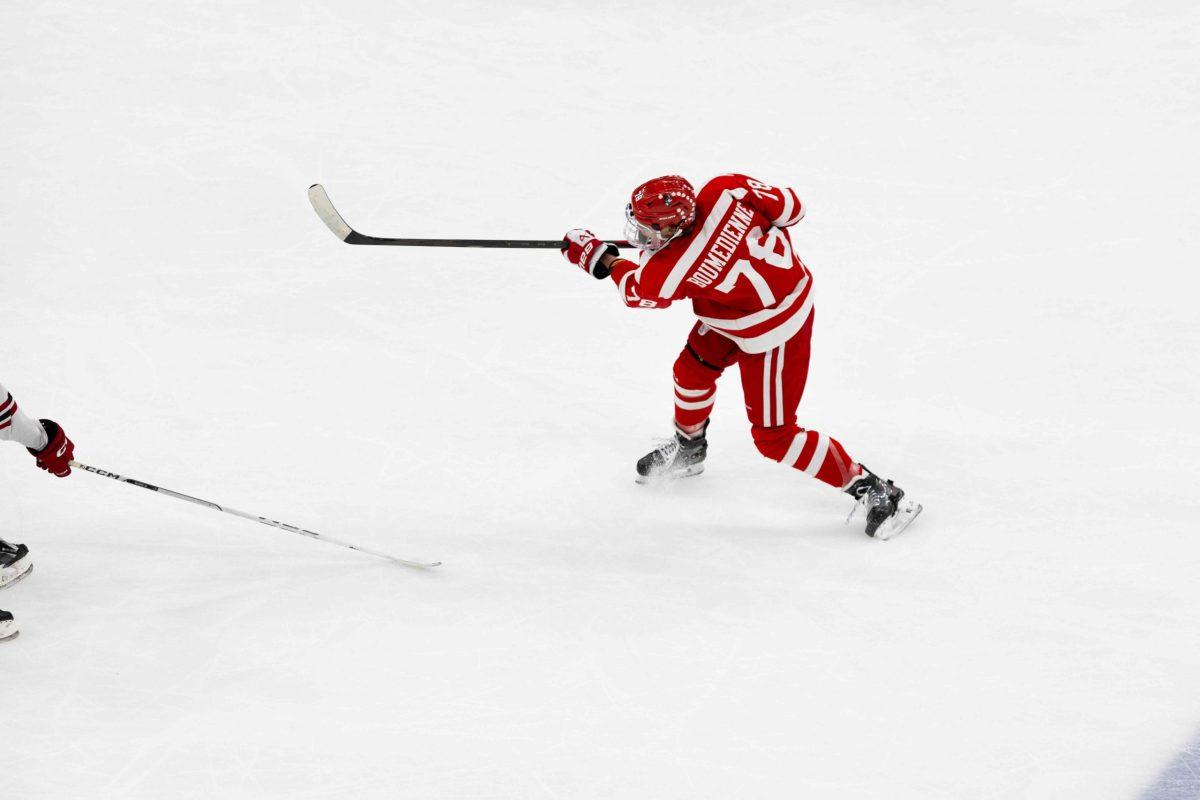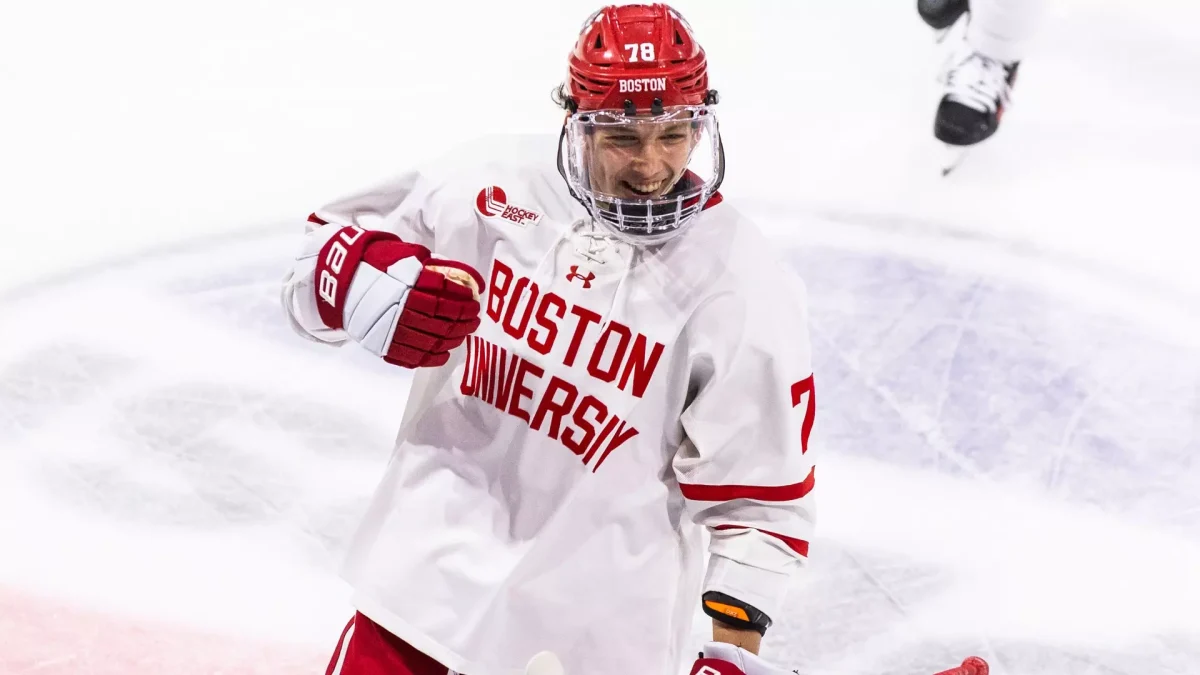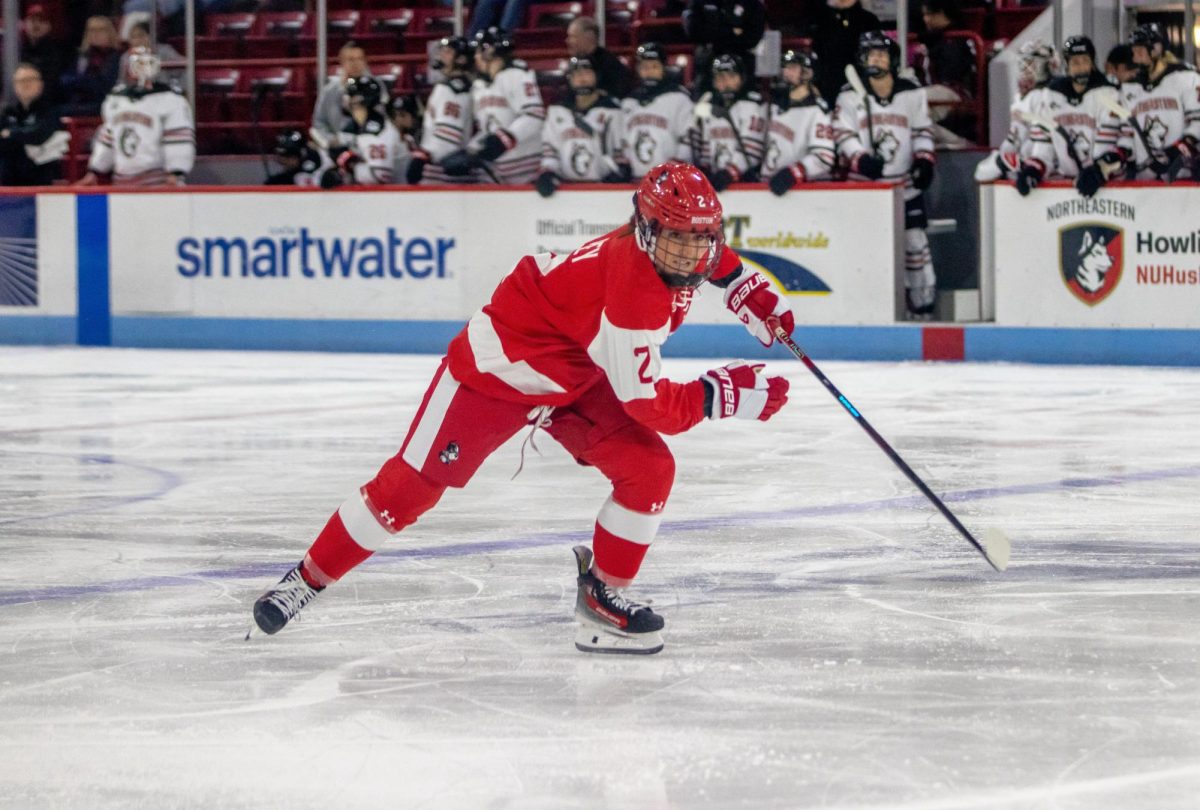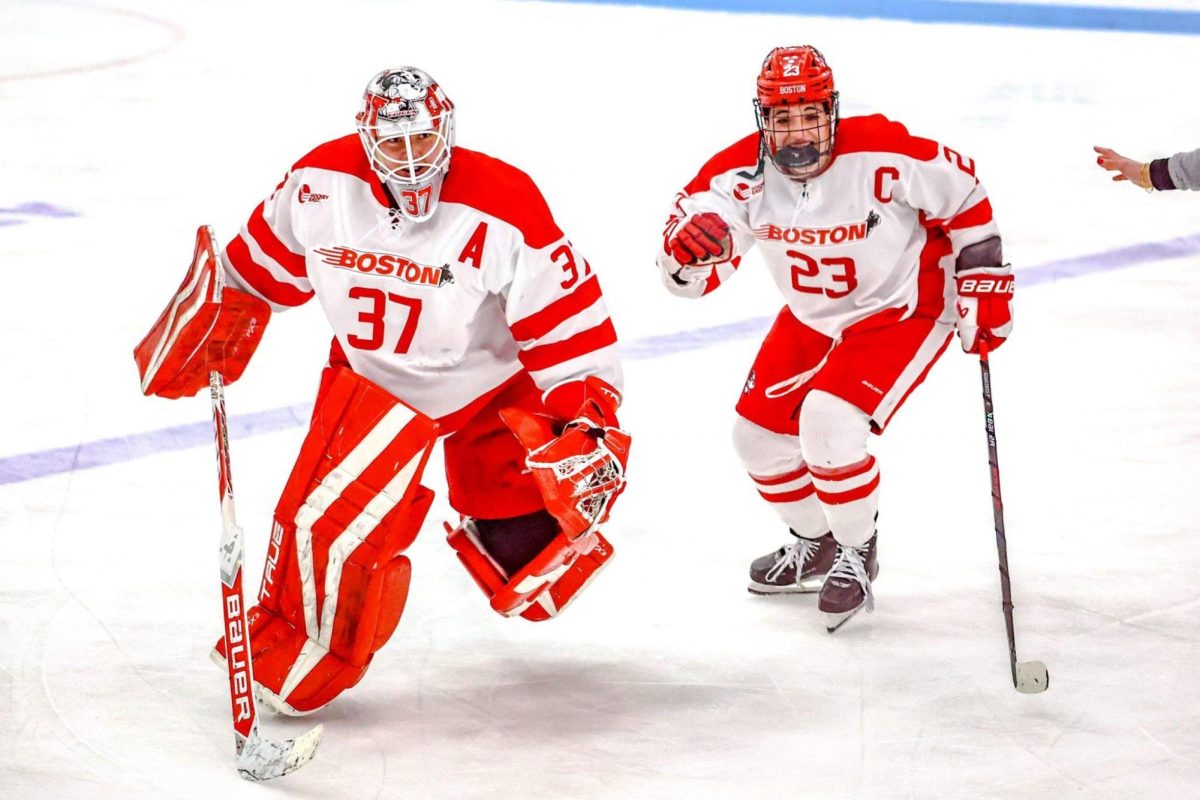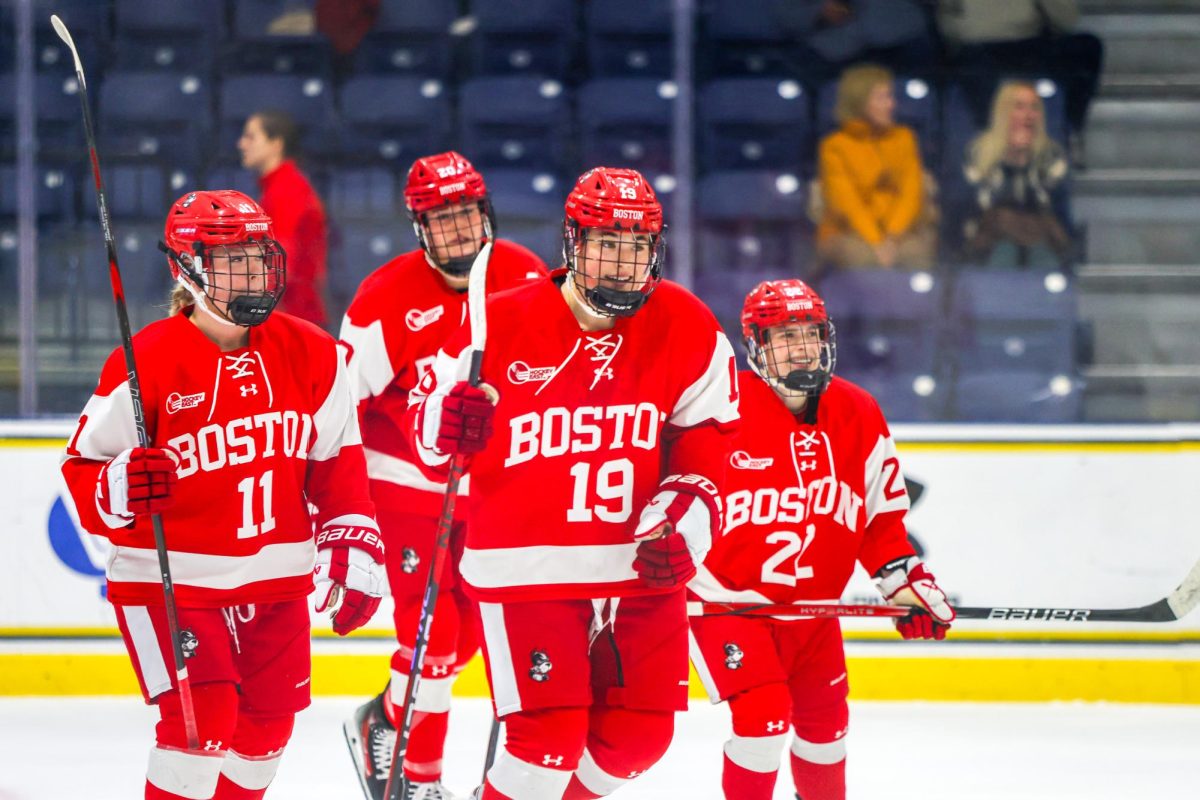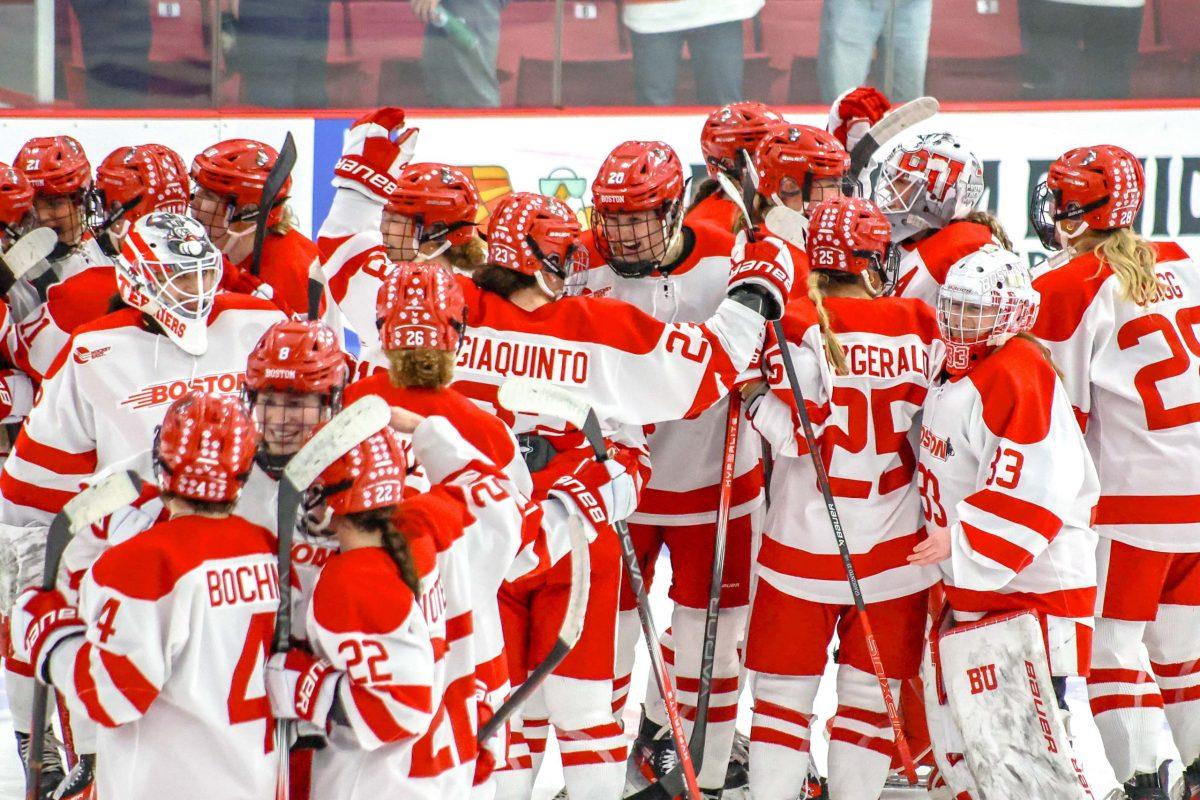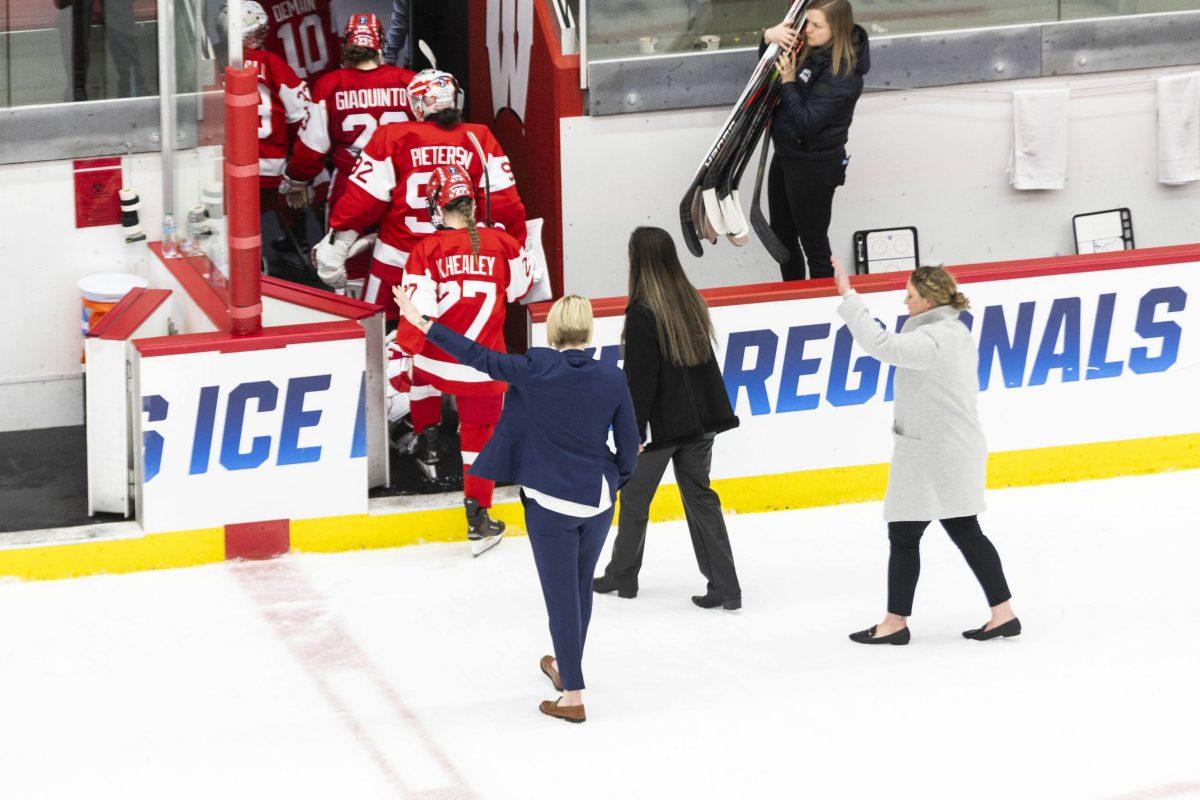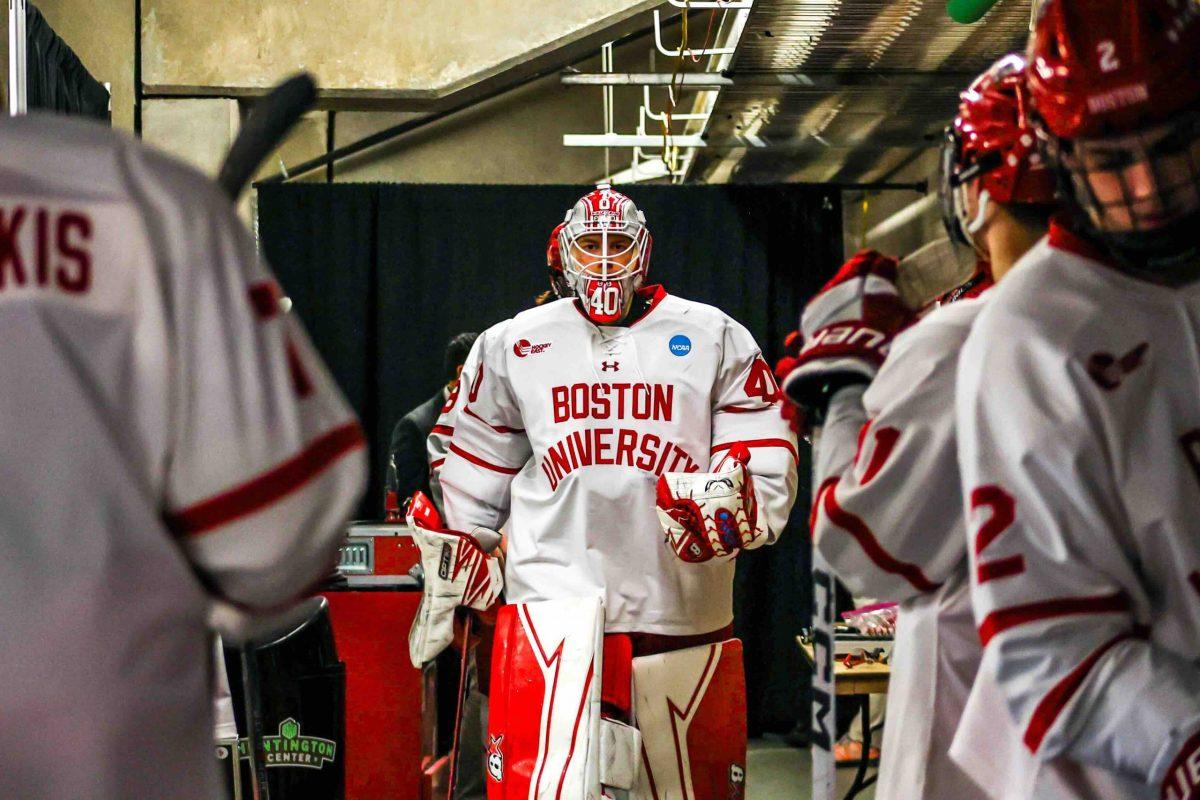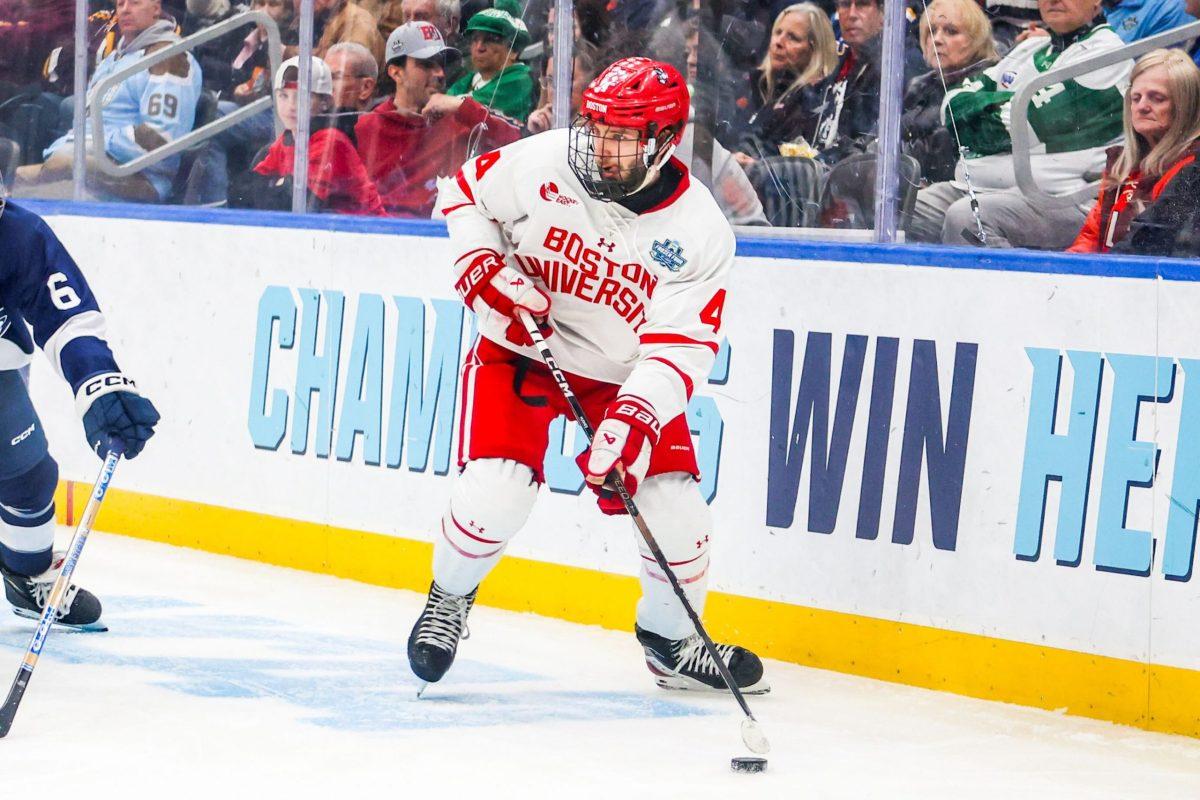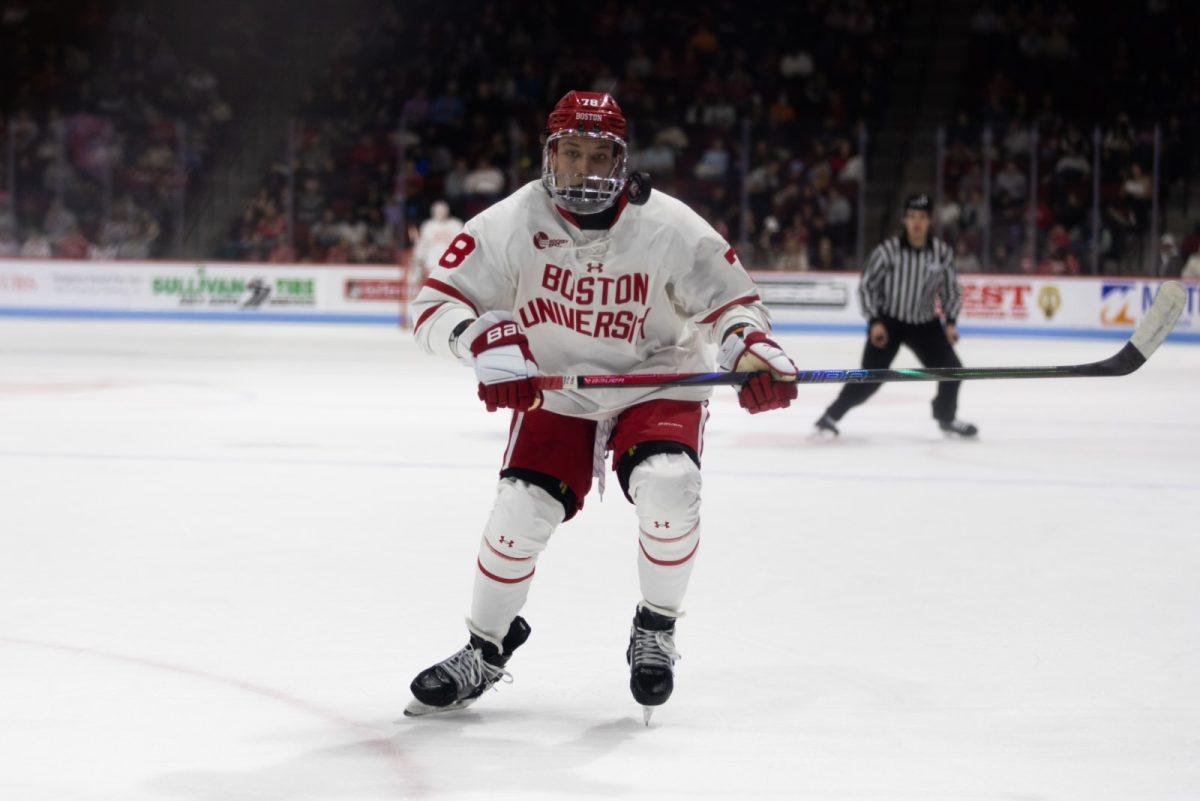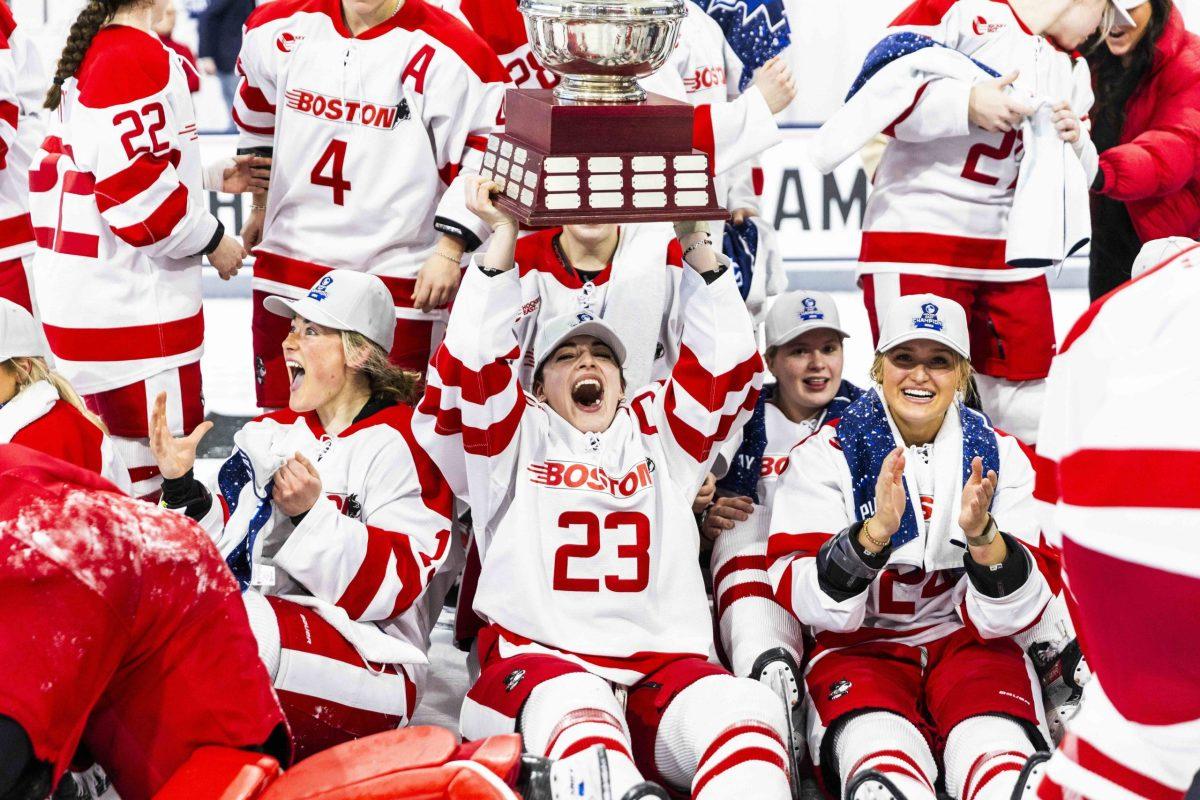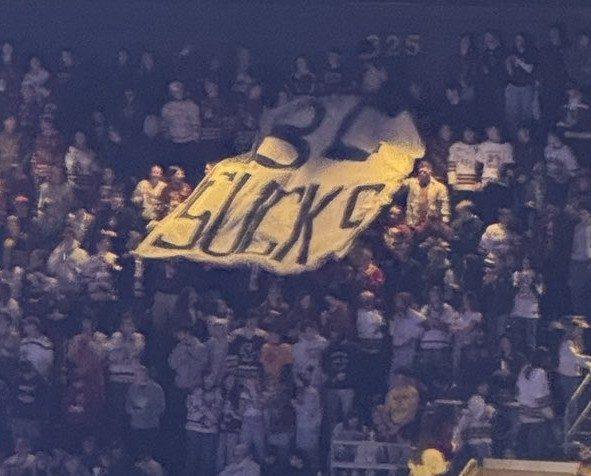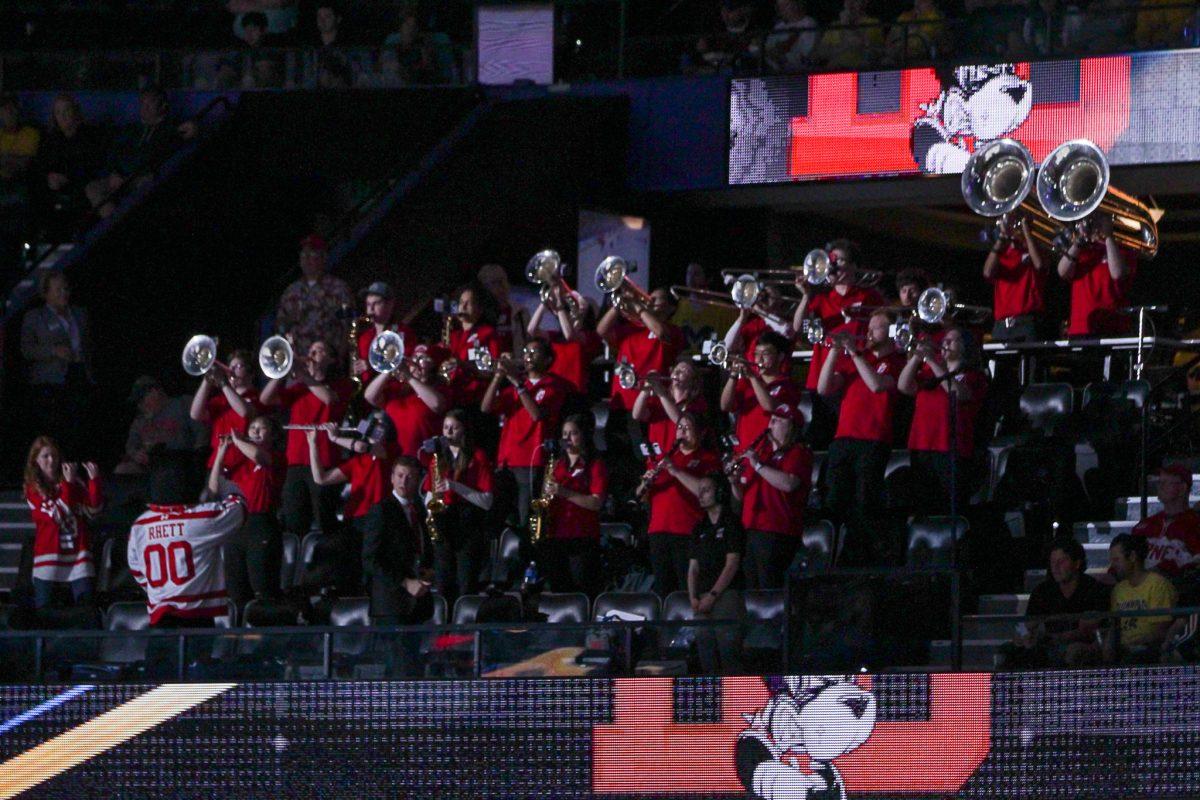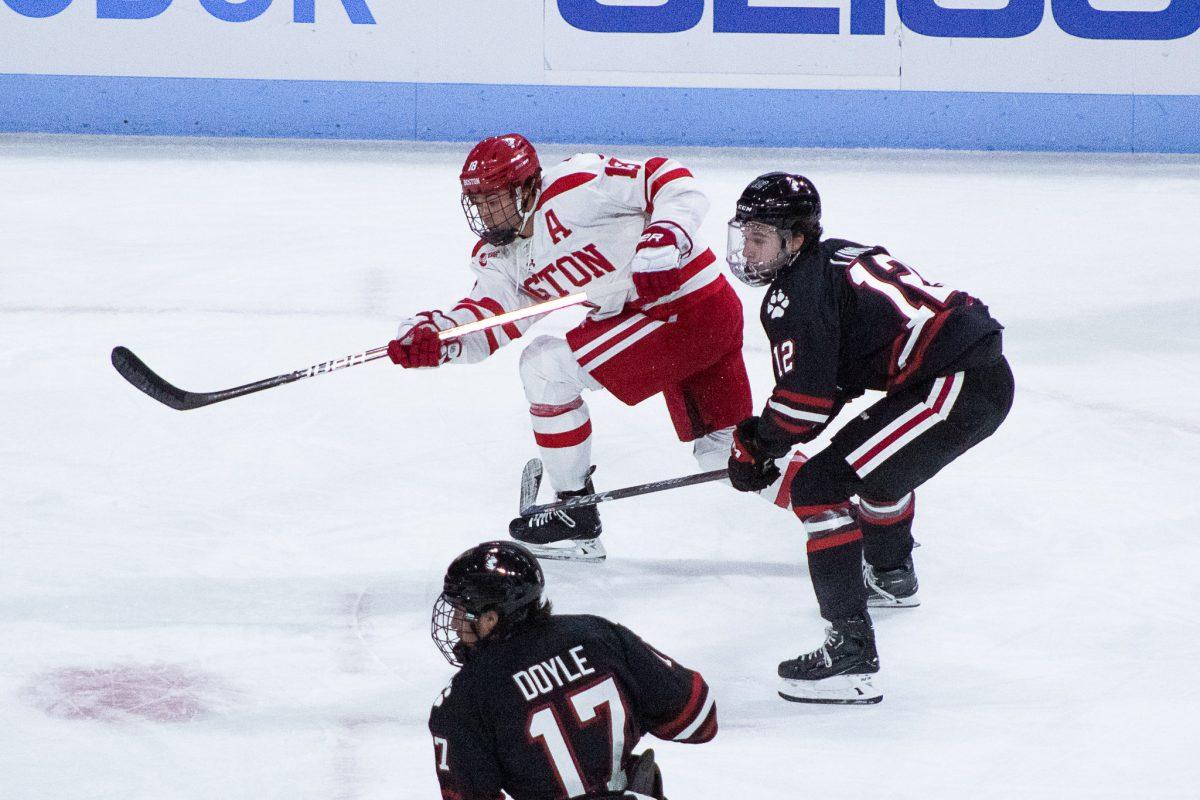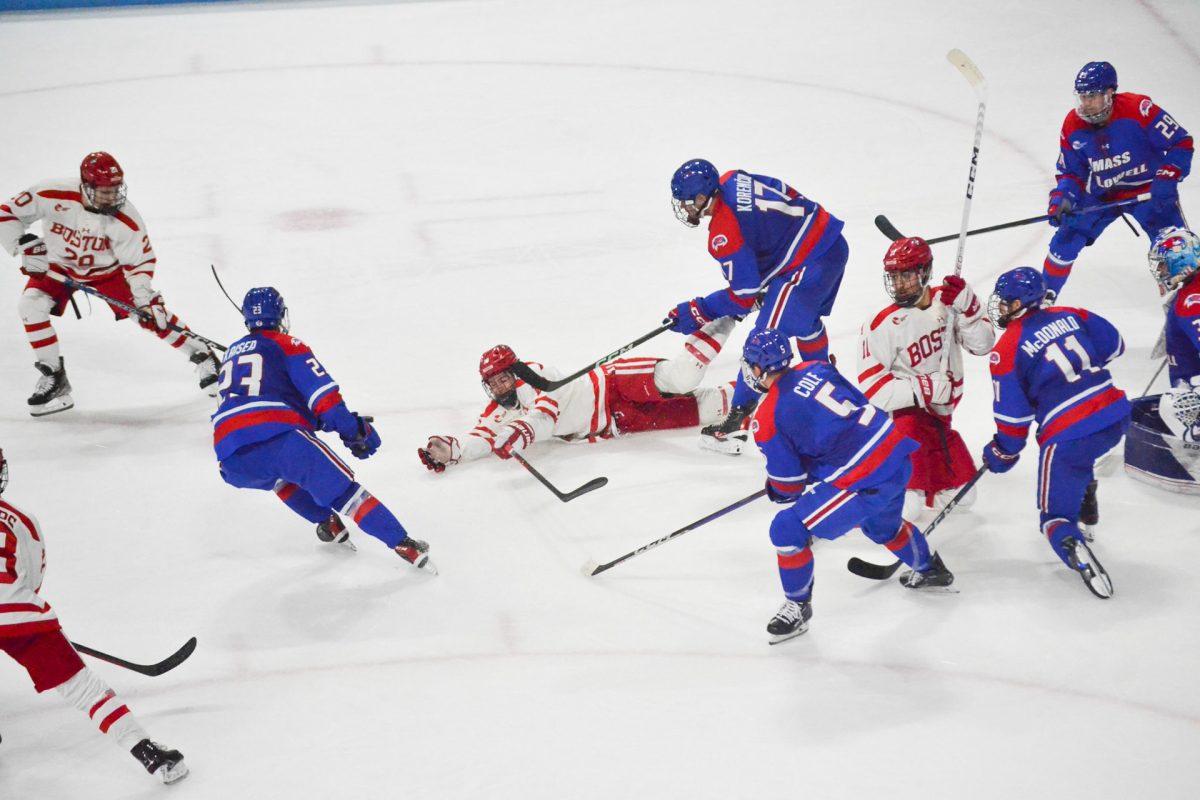By Scott McLaughlin and Jake Seiner/DFP Staff
Offense – B+
The Terriers were the dominant offense in every way other than goals. They more than doubled the Big Red in shots on goal (35-17), including a 13-3 differential in the third period. Shots attempted were even more lopsided –– 87-38 for BU in the game, 34-7 in the third. And grade-A chances? BU owned that category, too –– 20-7 for the game, 10-0 in the final stanza. Given those numbers, it should come as no surprise that the Terriers were able to come back from a 3-1 deficit in the third. What is surprising, though, is that they had only mustered one goal until that point. A combination of guys not finishing at the net, Cornell goalie Ben Scrivens making some great saves and Big Red defenders blocking an astounding 27 shots in the game were the biggest reasons for that.
Defense – B+
This grade would almost certainly be an ‘A’ if it weren’t for Cornell’s second goal. On that play, Kevin Shattenkirk and Colby Cohen both got caught up ice on the rush, leaving Locke Jillson with a breakaway from his own blue line. Other than that goal, though, the Terrier D was stellar. Holding the third-ranked offense in the nation to 17 shots is nothing short of impressive. Even more impressive was that instead of getting worn down as the game went on like most of the Big Red’s opponents (16 of Cornell’s 33 goals coming into tonight had come in the third period), BU’s blue-liners only got stronger. Cornell put just three shots on net in the final 20 minutes, and none of them were from any closer than the faceoff dots.
Goaltending – C+
Grant Rollheiser had a game of up and downs. One of the first things BU coach Jack Parker said after the game was he was sure Rollheiser would want to have Cornell’s first goal back. After defenseman Sean Whitney’s initial shot was blocked at the point by Chris Connolly, Whitney collected the deflection and moved below the right faceoff dot, where he let rip a wrister that beat Rollheiser gloveside, against the right post. Rollheiser was, by his coach’s account, too deep in his own net, and as a result was poorly positioned to defend the shot, which came at an angle that a D-I netminder should be able to handle with relative ease. Still, Rollheiser rebounded after the shaky start, and neither of Cornell’s final two goals can be pinned on the sophomore –– one came on a breakaway and the other a one-timer from a lane that never should have been open.
Special Teams – C+
BU’s penalty kill allowed two goals on five chances. It also allowed only four shots on those chances, including none on Cornell’s final power-play chance with just over five minutes to go. Whitney’s initial goal falls on the shoulders of Rollheiser, but the second, according to Parker, was the result of a miscommunication between his forwards. Both players got themselves caught high in the zone on the right side of the ice, so when Whitney took the puck at the right point, he had a wide open lane to Gallagher, who was camped at the left post and had only to worry about burying his one-time shot. Meanwhile, the BU power play struggled to get shots past Cornell’s defense. The Terriers moved the puck quickly, but not effectively, as the Big Red left them with few shooting lanes and all but eliminated the threat of Colby Cohen’s dangerous slapper.
X-Factor – “Stick to it-ness”
Parker couldn’t come up with a word to describe the way his team responded after falling behind 2-0 early in the first. Instead, he simply made one up. BU’s “stick to it-ness” helped urge the Terriers to control the pace of play through the last half of the first period, and on through the rest of the game.
Rollheiser from the first, soft goal to make a series of superb saves on Cornell sophomore Collin Greening. The penalty kill bounced back and held strong when it absolutely needed to –– down a man and a goal on the scoreboard with under five minutes to go. The power play finally broke through, 6-on-4, to force overtime with less than a minute left.
When BU needed to break through in any facet of the game, it managed to find a way just in time. It wasn’t a 60-minute effort on the Terriers’ part, but BU was the better team for the final 50 minutes, and as Shattenkirk said during postgame interviews, the attitude on the team has shifted away from its previous “roll over and die” mentality. Warsofsky said after the last UNH game he thought a shift was coming. Two last-minute, game-tying goals against Harvard and Cornell, later, Warsofsky might just end up being the psychic who predicted a BU turnaround.

